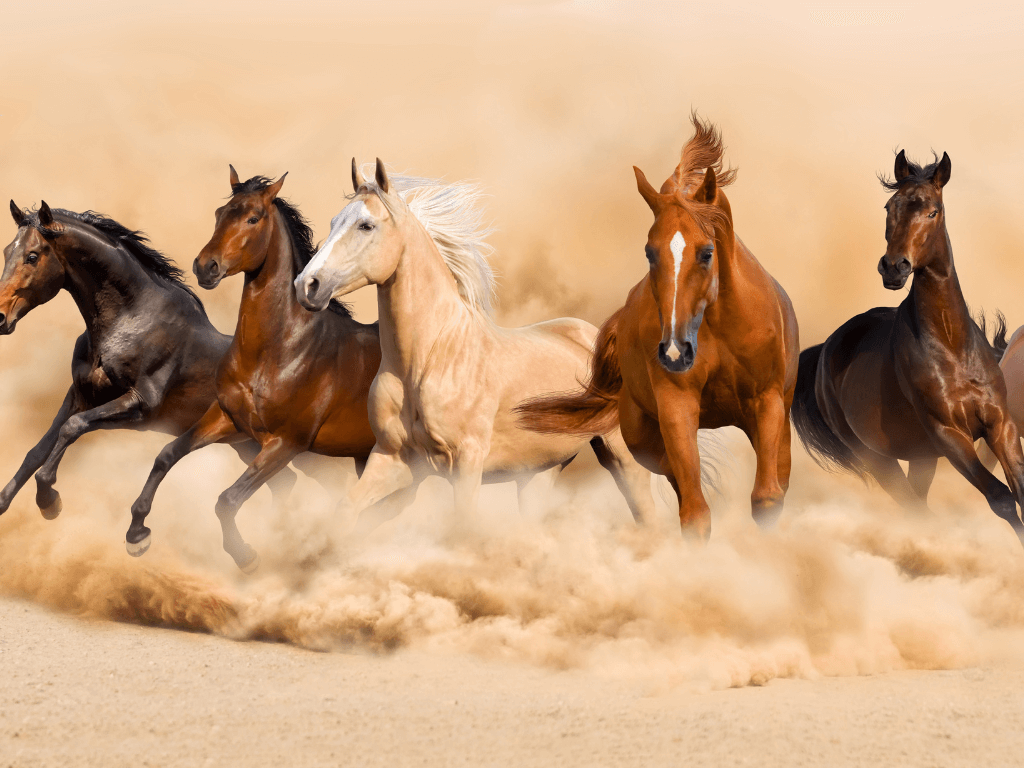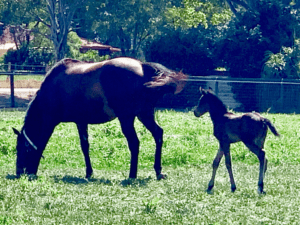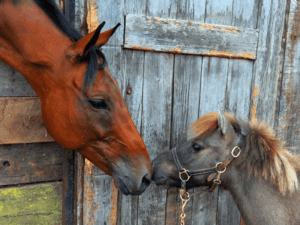How Long Do Horses Live?

Horses have been faithful companions for human beings for centuries, and their lifespan is a crucial factor when it comes to owning them.
Knowing the average lifespan of horses and the factors that affect their longevity is essential for any horse owner.
The life expectancy of horses can range from 20 to 30 years old, but what determines the difference? In this article, we will delve into the topic of How Long Do Horses Live? and explore the factors that determine their lifespan, healthy habits that can prolong their life, and signs of aging to watch out for.
So, let's saddle up and dive into this fascinating topic!
Average Lifespan of Horses
Magnificent horses have been domesticated for centuries, evoking curiosity about their lifespan. Generally, equines live between 20-30 years, yet some may exist for up to 40 years and beyond. Breed, genetics, and care immensely impact a horse's existence.
Particularly, breeds like ponies often outlive bigger ones. Additionally, genetics play an essential role in determining life expectancy. Horses with robust genes may remain in good condition for many years.
Moreover, providing adequate nutrition, physical activity, and routine veterinary care can increase a horse's longevity. Furthermore, proper dental care is essential to fend off weight loss and other health issues.
Incorporating healthy habits into a horse's regimen can also extend its life. Providing fresh water, nutritious food, and suitable shelter is a must.
Furthermore, regular exercise and turnout are beneficial for their physical and mental health. Monitoring horses for any signs of health issues and addressing them swiftly is also necessary.
These helpful habits can help horses stay alive and healthy for a longer duration.
Factors Affecting Horse Lifespan
Genetics is a major factor in determining the longevity of horses. Certain breeds can be more susceptible to certain health issues that can cut short their life expectancy. Therefore, it is paramount to select a breed with a strong track record for good health and longevity.
Nutrition is another key element in influencing the lifespan of horses. A balanced diet, free from deficiencies, is essential for maintaining good health and long life; conversely, an overly rich diet can prove detrimental, increasing the risk of sickness and decreasing life expectancy.
The environment in which a horse resides is also a significant factor. Horses kept in a clean and properly maintained environment have a lower chance of developing respiratory problems or infections that can reduce their lifespan.
Additionally, socialization with other horses and regular exercise is beneficial for their health and may extend their life.
Finally, the quality of care a horse receives from its owner or caretaker has an immense impact on its life expectancy.
Regular veterinary check-ups, proper grooming, and timely treatment of any health issues are all essential for keeping a horse healthy and extending its life.
Neglect or mistreatment, however, can bring about stress, anxiety, and poor health, drastically reducing the horse's life expectancy.
Stages of Maturity in Horses

1. Newborn (Birth to Weaning)
For nutrition, these horses rely heavily on their mothers.
2-Weanling (4 to 7 months old)
Between the ages of 4 and 7 months, foals are weaned from their mothers. At this stage, their diet shifts from mainly milk to primarily forages and grains.
3-Youth (weaning to 3 years old)
This is a phase of active growth for horses. By the time they reach three years old, most of their growth plates have closed.
4-Adult (3 years to 15 years)
Horses at this stage have typically completed their growth and are in their prime athletic years.
5-Geriatric (15+ years)
After turning 15, horses tend to slow down and require more support to remain healthy.
There are no breed associations that predict longer or shorter lifespans in horses. Like dogs, smaller breeds, particularly ponies, tend to live longer.
Ponies have been known to live into their forties and beyond.
Healthy Habits to Prolong Horse Lifespan
Maximizing the years of horse life requires healthy practices. Nourishment, containing protein, fiber, and necessary vitamins and minerals, is essential.
Exercise helps maintain an ideal weight, strengthens the cardiovascular system, and lessens certain risks.
By promoting these habits, owners can extend the equine's lifespan.
Routine veterinary care is imperative for horse longevity. It includes regular medical exams, immunizations, and dental hygiene.
Early diagnosis and treatment of ailments prevent more serious issues. Veterinary attention also can detect underlying conditions that impact life expectancy.
By adhering to these practices, horses can live longer and healthier lives.
Creating a secure and cozy dwelling for horses is critical. Providing adequate shelter, fresh water, and clean space is essential. Furthermore,
- protecting horses from extreme temperatures
- and hazardous objects and vegetation
reduces stress and improves overall health. By following these steps, owners can help horses reach a potential of 51 years or more!
Signs of Aging in Horses
As equines age, their appearance can take on new traits, indicative of advancing years. Common markers include coat discoloration, the emergence of gray hairs, and a reduction in vigor.
It is important that horse owners recognize these signs in order to provide the best possible care for their aging steeds, thereby ensuring a prolonged and healthy life.
In addition, dental problems may arise as horses grow older. Teeth may become worn or misaligned, making it difficult to chew and digest food.
This can lead to malnourishment and other health issues if not treated promptly. Maintaining regular dental checkups and proper dental hygiene can help prevent these problems and keep horses healthy for the long horses live.

Aging can also cause joint stiffness and pain, making it difficult for horses to move around. This can be especially problematic for horses used for riding and other activities.
To counteract this, owners can give their horses the right supplements, medications, and plenty of exercise, as well as maintain a healthy weight.
Finally, the behavior of older horses may change, such as increased irritability, skittishness, or lack of interest in socializing.
These modifications can be brought about by a variety of causes, including pain, impaired vision or hearing, or simply the aging process.
Horse owners should be aware of these changes and consult their veterinarian to determine the best course of action.
What Makes Some Horses Live Longer Than Others?
Determining which horses will live longer than others cannot be attributed to a single factor.
Although there is likely a genetic component to why some horses live longer, it is not fully comprehended at present.
A horse's chances of living a long and healthy life are significantly enhanced by a proper diet, exercise, hoof care, dental care, and medical care.
Conclusion
In conclusion, understanding how horses live and what factors can affect their lifespan is crucial for any horse owner. By implementing healthy habits and monitoring signs of aging, we can prolong our horses' lives and ensure they live happy and fulfilling lives.
Remember, horses live much longer than many other domesticated animals, so it is important to provide them with the proper care and attention they deserve.
With the information provided in this article, we hope you have a better understanding of how to care for your horse and ensure they live a long and healthy life.

Leave a Reply